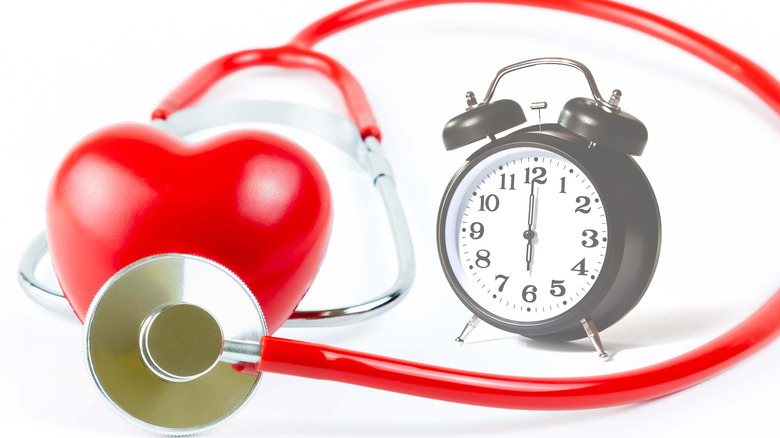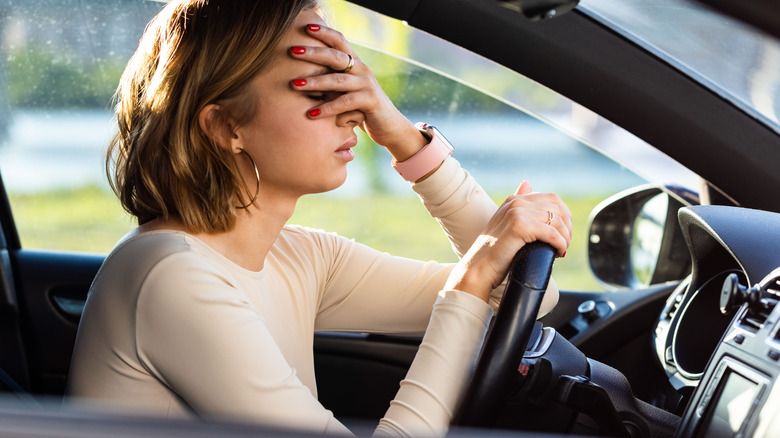Does The Heat Affect Blood Pressure?
High blood pressure is a common condition that afflicts nearly half of American adults (per University of Alabama). The condition can have grave consequences, doubling a person's odds of having a heart attack and quadrupling their risk of a stroke (via Johns Hopkins Medicine). This is especially a problem because many people exhibit no symptoms, and for that reason, they do not know that they have the condition until they visit the doctor, which many Americans unfortunately neglect to do (per Cigna). For this reason, high blood pressure has been dubbed "the silent killer" (per FDA).
While high blood pressure primarily affects adults of at least 40 years of age, younger people are developing high blood pressure at higher rates due to the obesity epidemic, according to the FDA.
With all of this in mind, it is natural to wonder what factors may influence blood pressure. Age, genetics, and diet are predictable, but did you know that even the weather can have an impact on your blood pressure?
Heat generally reduces blood pressure, but you should still take precautions to remain safe in the heat
According to Dr. Sheldon Sheps of Mayo Clinic, blood pressure tends to be lower in the summer and higher in cooler months. This is because blood vessels tend to narrow in response to the cold, and more pressure needs to be exerted in order to move blood through the body. Furthermore, many people gain weight and cut back on exercise in the winter, which can lead to a rise in blood pressure. For these reasons (among others), people are more likely to suffer cardiovascular problems in winter, according to Northwestern Medicine.
Research published in the journal Hypertension confirms that higher outdoor temperatures correlate with lower blood pressure. Moreover, one study of 4,659 people found that people who lived in colder homes exhibited higher blood pressure than those who lived in warmer homes. Cardiovascular Business recommends turning up the thermostat to at least 70 degrees Fahrenheit in order to help manage blood pressure.
However, certain blood pressure medications can make people more susceptible to sunburn and photosensitivity when they are outside unprotected in the summer heat (per Hackensack Meridian Health). It would be a good idea to ask your doctor about any potential lifestyle changes you may need to make when you are prescribed a new medication. And regardless of medication or blood pressure levels, it is always a good idea to take precautions against heat exhaustion.


